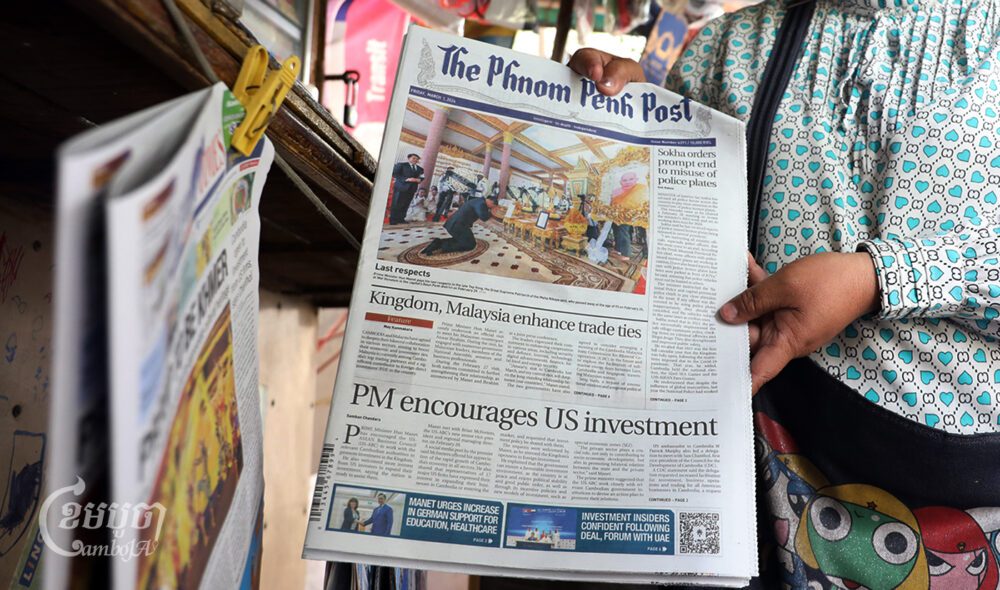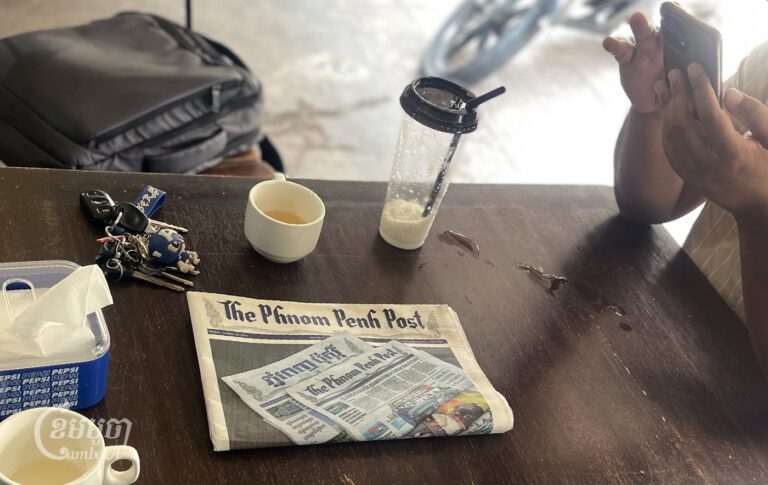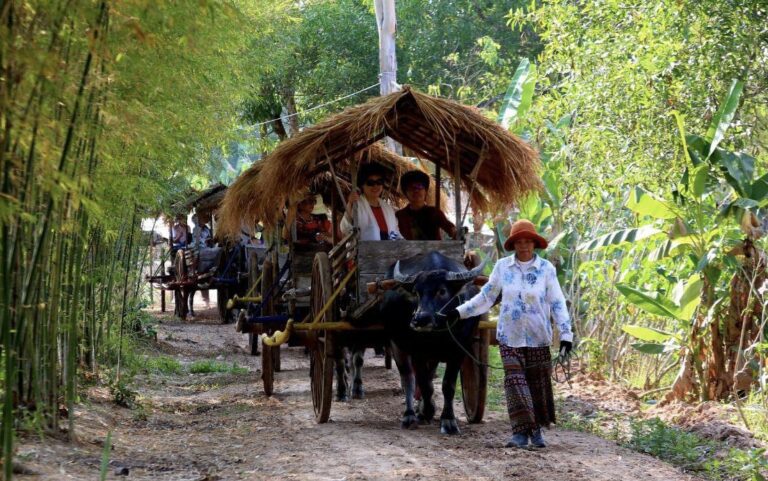The Phnom Penh Post will cease publication by March 29 following a significant fall in advertising revenues since the Covid-19 pandemic and the subsequent economic downturn, although the paper will continue operating online.
“Our shareholders have decided, with deep regret, to cease the publication of the newspaper, both the English and Khmer editions,” read the statement posted on its Facebook page on Friday.
Ly Tayseng, publisher and CEO of The Phnom Penh Post, or the Post as it is commonly known, confirmed the cessation of the print due financial challenges but declined to reveal specific figures.
However, he confirmed that the announcement only mentions the closing of its print publication, noting that the Post would continue to operate online. With regards to the latter, Tayseng said he would see “whether it runs smoothly or not”. “We don’t know […] we are considering,” he said.
In the meantime, “printing staff will be laid off,” he said, adding that he cannot disclose more information as it is confidential and the company is working on the issue. “We can’t comment as yet.”
“We regret [this decision] because the media plays an important role in contributing to the society, providing information to the people and developing the nation. However, due to economic problems, we cannot afford to support the costs as stated in the notice,” Tayseng said.
CamboJA reporters contacted the Post staff but they declined to share any details because the “company is working on the issue”.
The Post has been publishing for 31 years now, and is the Kingdom’s longest-running privately-owned newspaper, printing five days a week in Khmer and English while maintaining a website with daily updates.
US citizens Michael Hayes and Kathleen O’Keefe founded The Phnom Penh Post in 1992, which became the first independent newspaper. In 2008, the paper was sold to Australian miner Bill Clough.
Ten years later, the paper again changed hands, this time with a Malaysian investor, Sivakumar Ganapathy, who owned public relations firm Asia PR, according to a news report by Australian Broadcasting Corporation. The ownership change, critics opined, led to the Post allegedly losing its independence along with the departure of longtime newsroom staff.
Lack of funds has also crippled other media outlets in Cambodia. On February 27, Lotus Radio which had been operating since 2016 said it would stop its FM broadcast and shift their program online. They plan to use social media platforms like Facebook and Youtube instead.
Lotus Radio said during the eight-year broadcast, it has created educational content that increased people’s knowledge, such as recycling, Khmer culture and stories of songs from old societies.
Similar to the Post, the radio station said the production of programs via radio FM requires a lot of funds, impeding their operations. “We can’t continue, that is why we decided to stop from March 1 (Friday).”
According to the Cambodian Journalists Alliance Association or CamboJA’s quarterly report, the oldest Khmer-language Rasmei Kampuchea Daily also shuttered 30 years of operation in 2019.
Executive director of CamboJA Nop Vy expressed regret over the closure of print media regardless of their impact or how broadly they operated. He said the shutdown limits the space citizens can access information, particularly access to information on various political dispositions.
“Under any circumstances, it continues to impact the space for citizens to access information. Many journalists who are working there risk losing their job, but maybe they can pursue another career,” said Vy.
In order to prevent similar problems in future, existing media should practice new work styles and adapt to the changing technologies.
Observing that a few media outlets have stopped operation, like Lotus Radio and Rasmei Kampuchea newspaper, Vy said, if publishers do not change the way they work and improve their capabilities, more outlets may shut down.
Ministry of Information spokesperson Tep Asnarith told CamboJA via Telegram that the closure of the print version of The Phnom Penh Post would be an unfortunate and regrettable event for the traditional media landscape.
“In recent years, traditional media such as newspapers, magazines, radio and television have had to deal with the impact of rapid development of technology.”
“The Phnom Penh Post is the second traditional newspaper [in Cambodia] to experience such consequences after Rasmei Kampuchea, which recently shut down its publication. These are the effects and consequences of a turning point in the digital age,” said Asnarith.
That being said, he remarked, the Post would still continue to produce and provide information via digital broadcasts. Therefore, readers in Cambodia and globally would still have access to information and news about the country.
In addition, Asnarith said growth in the digital sector creates new opportunities for those in the field of information to promote more quality and efficient content.
As of October 2023, the media landscape in Cambodia featured 2,000 licensed media outlets, 51 media association, 404 TV stations (digital, optic, satellite, OTT, Live), 194 magazines, 447 prints, 284 radio stations, 938 online portals and 27 foreign news agencies, according to ministry data. Around 3,000 registered journalists operate in the country.
Note: This article has been edited to include a confirmation by The Phnom Penh Post CEO on the continuation of the paper’s digital website as well as a comment from the spokesperson of the Ministry of Information.














